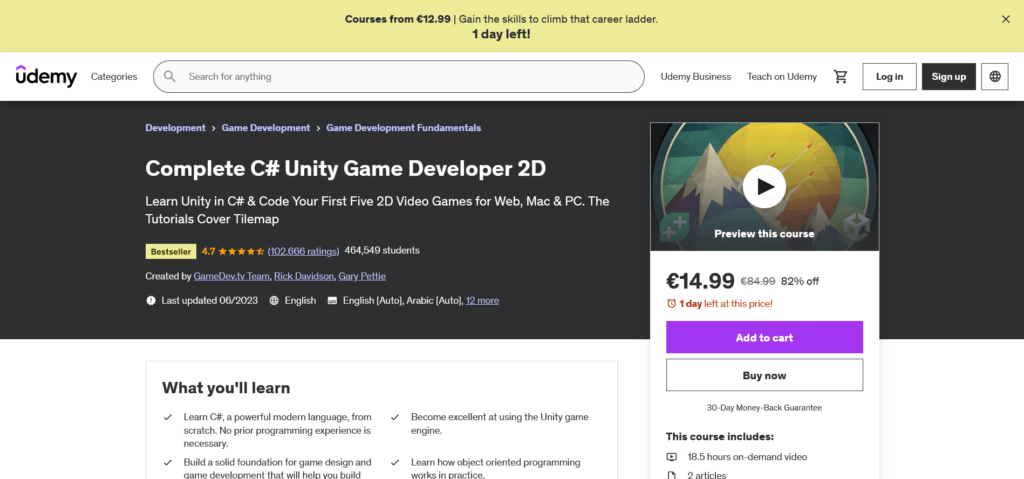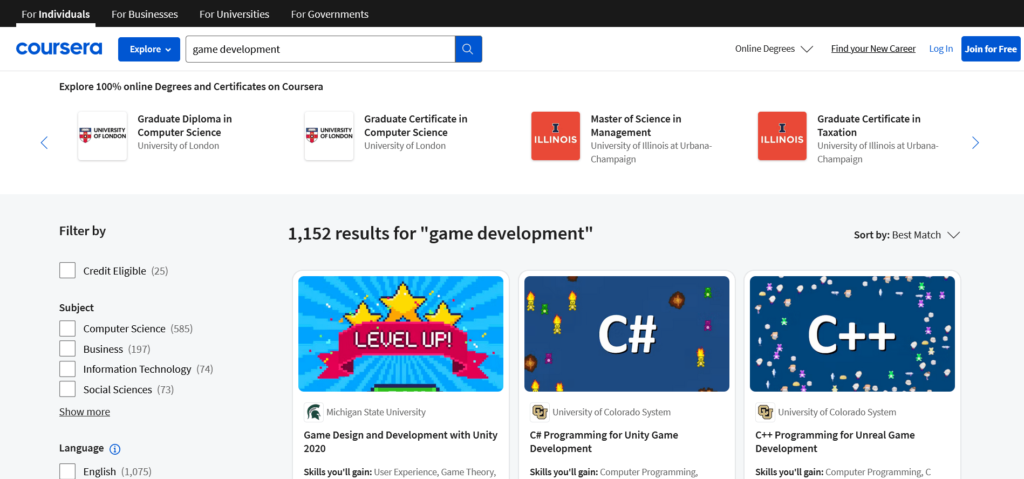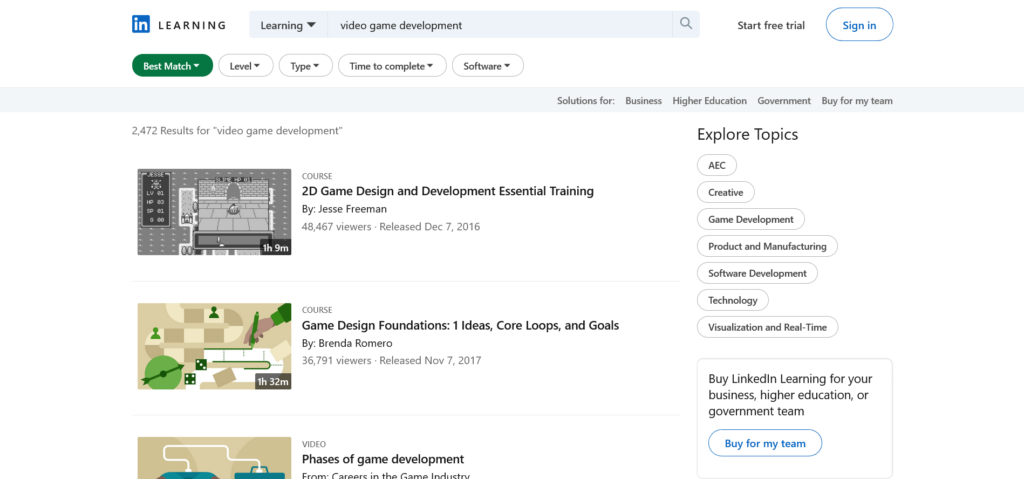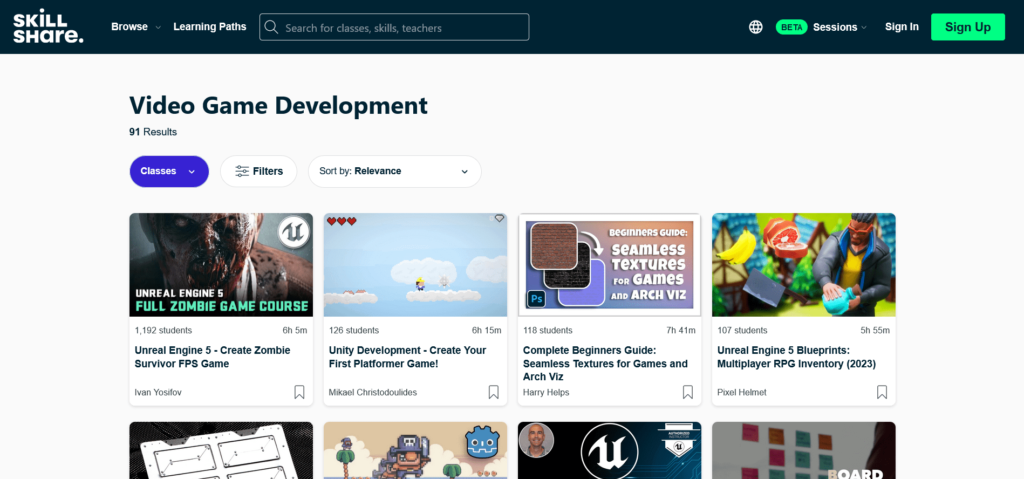Introduction
If you’ve ever wondered how to turn your love for gaming into a rewarding career, you’ve come to the right place. In this guide on how to become a video game designer, we’ll explore the essential steps and skills needed to break into this dynamic industry. Whether you’re a dedicated gamer dreaming of crafting your own virtual worlds or someone looking to transition into game development, the path to becoming a video game designer is within reach. Join us as we unravel the intricacies of this exciting profession and discover how to become a video game designer by mastering the key elements that set you on the course for success. Let’s dive into the fascinating journey of how to become a video game designer and turn your passion into a profession.
Understand the Role of a Video Game Designer
Before diving into the journey, it’s essential to understand the responsibilities of a video game designer. These professionals are the architects behind the gaming experience, responsible for creating game concepts, storylines, characters, and gameplay mechanics. They collaborate with artists, programmers, and other team members to bring a game to life.
Develop a Strong Educational Foundation
While some successful game designers have unconventional paths, acquiring formal education can significantly enhance your skills and credibility. Pursue a degree in game design, computer science, or a related field. Look for reputable institutions and courses that cover game development, programming languages, and design principles.
Cultivate a Passion for Gaming
Successful game designers are avid gamers themselves. Play a wide variety of games across different genres to understand what works and what doesn’t. Analyze game mechanics, storytelling techniques, and design elements. This firsthand experience will contribute to your ability to create engaging and enjoyable gaming experiences.
Master Key Technical Skills
Video game design requires a diverse skill set. Acquire proficiency in game development tools such as Unity or Unreal Engine. Learn programming languages like C++ or Python, as well as 3D modeling and animation software. The more versatile your skill set, the more valuable you become to potential employers.
Build a Strong Portfolio
Create a portfolio showcasing your best work. Include game design projects, concept art, level designs, and any programming or scripting you’ve done. A well-organized portfolio provides tangible evidence of your skills and creativity. Consider contributing to open-source projects or collaborating with others to diversify your experience.
Gain Practical Experience
Internships, apprenticeships, or entry-level positions in the gaming industry are invaluable for gaining practical experience. Seek opportunities to work on real projects, collaborate with experienced professionals, and learn about the industry’s inner workings. This hands-on experience will set you apart in a competitive job market.
Stay Updated on Industry Trends
The gaming industry is dynamic, with trends, technologies, and platforms constantly evolving. Stay informed about the latest advancements, emerging technologies, and popular game genres. Attend industry events, join online communities, and follow reputable gaming news sources to stay ahead of the curve.
Network with Industry Professionals
Building a network within the gaming industry can open doors to opportunities and insights. Attend gaming conferences, join online forums, and connect with professionals on platforms like LinkedIn. Building relationships with fellow designers, developers, and industry leaders can lead to mentorship, collaboration, and job opportunities.
Refine Your Soft Skills
In addition to technical skills, soft skills like communication, teamwork, and problem-solving are crucial for a successful game designer. Practice effective communication, both written and verbal, and learn to collaborate with diverse teams. The ability to adapt to feedback and iterate on designs is essential for growth in the field.
Create a Personal Brand
Establishing a personal brand can help you stand out in a competitive industry. Build a professional online presence through a personal website, blog, or social media platforms. Share your insights, experiences, and projects to showcase your expertise and passion for game design.

Top Online Education Platforms to Learn How to Become a Video Game Designer
As the gaming industry continues to flourish, the demand for skilled video game designers is on the rise. If you’re passionate about gaming and dream of crafting immersive digital worlds, enrolling in online education courses is a fantastic way to kickstart your career. In this article, we’ll explore the top online education platforms where you can learn how to become a video game designer, providing you with the knowledge and skills needed to thrive in this dynamic field.
Udemy

Udemy is a leading online learning platform that offers a myriad of courses on video game design. From beginner-friendly introductions to advanced courses covering specific tools and techniques, Udemy provides an accessible and diverse range of options. Courses often include hands-on projects, ensuring you gain practical experience as you learn.
Coursera

Coursera collaborates with top universities and institutions to provide high-quality, university-backed courses in game design. Offering specialization programs, Coursera allows you to delve deep into various aspects of game design, including game development, programming, and interactive storytelling.
LinkedIn Learning

LinkedIn Learning is an excellent platform for aspiring video game designers. With courses led by industry experts, you’ll gain valuable insights and learn real-world applications of your skills. The platform’s emphasis on networking and connecting with professionals can provide additional benefits for your career development.
Pluralsight
Pluralsight is a platform that specializes in technology-related courses, making it an ideal choice for those looking to master the tools and technologies used in game development. Courses on Pluralsight cover a wide array of topics, from game design fundamentals to advanced programming languages.
FutureLearn
FutureLearn collaborates with universities and institutions worldwide to offer courses on a diverse range of subjects, including game design. Engage in discussions, collaborate with learners globally, and gain a holistic perspective on the future of game design through their well-structured courses.
Skillshare

Skillshare is a creative platform that hosts a variety of courses on game design. With a focus on creativity and design techniques, Skillshare provides a unique learning experience. Learn from experienced professionals and tap into a community of fellow learners passionate about game design.
edX

edX, a platform founded by Harvard and MIT, offers courses from prestigious institutions globally. Enhance your game design credentials with courses that cover everything from basic principles to advanced game development. edX provides a pathway for those seeking professional certification.
Top 10 Questions and Answers About How to Become a Video Game Designer
1.What qualifications are needed to become a video game designer?
To become a video game designer, a strong educational foundation is crucial. Pursuing a degree in game design, computer science, or a related field is recommended. However, some successful designers have diverse educational backgrounds. It’s essential to master technical skills, including game development tools, programming languages, and 3D modeling.
2. Can I become a game designer without a degree?
While a degree can enhance your skills and credibility, it’s not a strict requirement. Building a robust portfolio, gaining practical experience through internships or projects, and acquiring technical skills can compensate for the lack of a formal degree. Focus on showcasing your talents and accomplishments in your portfolio.
3. What programming languages should I learn for game design?
Mastering programming languages is vital for game design. Start with languages like C++ and Python, as they are widely used in the gaming industry. Familiarity with scripting languages is also beneficial. Online platforms and courses offer resources to learn these languages, and hands-on practice is key.
4. How do I build a strong portfolio for game design?
A strong portfolio is a game-changer in the competitive world of game design. Include a variety of projects such as game designs, concept art, level designs, and programming work. Showcase your creativity, problem-solving skills, and versatility. Regularly update your portfolio to reflect your latest and best work.
5. What skills are essential for a video game designer?
Successful video game designers possess a diverse skill set. Technical skills, including proficiency in game development tools, programming, and 3D modeling, are crucial. Soft skills such as communication, teamwork, and problem-solving are equally important. Adaptability and a passion for gaming round out the essential skill set.
6. How can I gain practical experience in game design?
Practical experience is invaluable in the gaming industry. Seek internships, apprenticeships, or entry-level positions to work on real projects and collaborate with professionals. Participate in game jams, contribute to open-source projects, and build a network within the industry for opportunities to gain hands-on experience.
7. What are the best game design courses and certifications?
Numerous reputable institutions and online platforms offer game design courses and certifications. Consider courses on platforms like Coursera, Udemy, or specialized game design schools. Look for programs that cover game development tools, programming languages, and design principles to gain a well-rounded education.
8. How can I stay updated on the latest trends in game design?
Staying informed about industry trends is crucial for a successful game designer. Attend gaming conferences, join online forums and communities, and follow industry leaders on social media. Engage with gaming news sources and regularly check for updates on emerging technologies, platforms, and popular game genres.
9. Are there any networking opportunities for aspiring game designers?
Networking is a key aspect of building a successful career in game design. Attend gaming events, conferences, and meetups to connect with professionals in the industry. Join online forums and communities, and create a professional presence on platforms like LinkedIn to expand your network and explore potential collaborations.
10. How long does it take to become a proficient video game designer?
The timeline to become a proficient video game designer varies based on individual factors such as education, dedication, and prior experience. On average, obtaining a relevant degree and gaining practical experience may take several years. Continuous learning and staying updated on industry trends contribute to ongoing professional development.
Answers to the Top 10 Common Video Game Designer Interview Questions
Securing a job as a game designer is a dream for many passionate individuals in the gaming industry. However, the journey to landing that coveted position often begins with a challenging job interview. To help you ace your next interview, we’ve compiled a list of the 10 most common questions asked during game designer job interviews, along with expert answers to guide you towards success.
1. Can you walk us through your experience in game design?
Answer: Start by highlighting your educational background, relevant skills, and any previous work experience in the gaming industry. Focus on specific projects you’ve worked on, mentioning your contributions and achievements. Emphasize your creativity, problem-solving abilities, and passion for game design.
2. What inspired you to pursue a career in game design?
Answer: Share your genuine passion for gaming and how it sparked your interest in game design. Discuss specific games that influenced you and how they shaped your desire to create immersive experiences for players. Highlight any personal projects or experiences that fueled your passion for game design.
3. How do you stay updated on the latest trends and technologies in game design?
Answer: Demonstrate your commitment to continuous learning by mentioning industry-related websites, forums, and online courses you regularly follow. Discuss how you experiment with new tools and technologies to expand your skill set. Mention any relevant conferences, workshops, or networking events you attend to stay connected with the gaming community.
4. Can you describe your approach to game design and development?
Answer: Outline your creative process, starting from conceptualization to final implementation. Discuss how you gather inspiration, conduct research, and brainstorm ideas. Highlight your ability to collaborate with multidisciplinary teams, iterate on designs based on feedback, and meet project deadlines effectively.
5. What do you consider the most important aspects of game design?
Answer: Stress the significance of player engagement, storytelling, and gameplay mechanics in creating memorable gaming experiences. Discuss the importance of balancing creativity with technical proficiency, ensuring that games are both fun and functional. Emphasize the value of user feedback and data-driven decision-making in refining game designs.
6. How do you handle creative differences or conflicts within a team?
Answer: Showcase your communication and conflict resolution skills by describing how you actively listen to team members’ perspectives and seek common ground. Discuss your willingness to compromise and adapt to different creative visions while staying focused on achieving shared goals. Provide examples of successful collaborations and how they contributed to project success.
7. Can you discuss a challenging problem you encountered during a game development project and how you resolved it?
Answer: Share a specific example of a problem you faced, such as technical limitations, design constraints, or unexpected setbacks. Describe the steps you took to analyze the problem, brainstorm potential solutions, and collaborate with team members to implement a successful resolution. Highlight your problem-solving abilities and resilience in overcoming obstacles.
8. How do you approach testing and refining game mechanics?
Answer: Explain your systematic approach to playtesting, gathering feedback, and iterating on game mechanics to improve player experience. Discuss the importance of usability testing, analytics, and user research in identifying areas for improvement. Emphasize your attention to detail and willingness to iterate based on player feedback to create polished game mechanics.
9. What role do you see emerging technologies, such as virtual reality (VR) or augmented reality (AR), playing in the future of game design?
Answer: Discuss your excitement for emerging technologies and their potential to revolutionize the gaming industry. Highlight any experience or interest you have in experimenting with VR, AR, or other immersive technologies. Share your ideas for leveraging these technologies to create innovative and immersive gaming experiences that push the boundaries of traditional gameplay.
10. Where do you see yourself in the next five years as a game designer?
Answer: Express your long-term career goals and aspirations within the gaming industry. Discuss your desire to continue growing as a game designer, taking on more challenging projects, and expanding your expertise in areas such as game development, narrative design, or game production. Highlight your commitment to lifelong learning and professional development to stay ahead in this dynamic field.
Two Example Resumes for a Video Game Designer With Different Levels of Experience
Resume Example 1: Entry-Level Game Designer
[Your Name] [Your Address] [Your City, State, Zip Code] [Your Email Address] [Your Phone Number] [LinkedIn Profile URL]
Summary: Aspiring Game Designer with a passion for creating immersive gameplay experiences. Skilled in game design principles, level design, and prototyping. Eager to leverage academic knowledge and creative skills to contribute to innovative game projects and gain hands-on experience in the gaming industry.
Skills:
- Game Design
- Level Design
- Prototyping
- Unity3D
- Unreal Engine
- Adobe Creative Suite
- Problem-Solving
- Creativity
- Team Collaboration
- Communication
Education: Bachelor of Arts in Game Design [University Name], [City, State] [Graduation Year]
Projects:
- Designed and developed a 2D platformer game prototype using Unity3D, focusing on intuitive controls, challenging level design, and engaging gameplay mechanics.
- Collaborated with classmates to create a narrative-driven adventure game, contributing to the design of puzzles, dialogues, and player choices.
Experience: Game Design Intern | XYZ Games | [Dates]
- Assisted senior designers in brainstorming game ideas, creating design documents, and prototyping gameplay mechanics.
- Contributed to the development of level layouts, enemy behaviors, and player progression systems for upcoming game projects.
- Conducted playtesting sessions, collected feedback from testers, and provided suggestions for improving game mechanics and player experience.
Certifications:
- Unity Certified Associate: Game Developer
Portfolio: [Link to Portfolio showcasing game design projects and prototypes]
Resume Example 2: Experienced Game Designer
[Your Name] [Your Address] [Your City, State, Zip Code] [Your Email Address] [Your Phone Number] [LinkedIn Profile URL]
Summary: Creative and experienced Game Designer with over [X years] of experience in designing and developing engaging gameplay experiences. Proficient in all aspects of game design, from concept creation to final implementation. Skilled in collaborating with multidisciplinary teams to deliver high-quality games that captivate players. Adept at leveraging industry trends and emerging technologies to push the boundaries of game design.
Skills:
- Game Design
- Level Design
- Gameplay Mechanics
- Prototyping
- Storytelling
- Unity3D
- Unreal Engine
- Adobe Creative Suite
- Agile Development
- Team Collaboration
Experience: Game Designer | XYZ Studios | [Dates]
- Led the design and development of multiple successful game titles, including [Game Title 1] and [Game Title 2], which received critical acclaim and achieved commercial success.
- Collaborated with artists, programmers, and producers to conceptualize game ideas, create design documents, and iterate on gameplay mechanics.
- Implemented level layouts, enemy AI behaviors, and game systems using Unity3D, ensuring seamless gameplay experiences.
- Conducted playtesting sessions, gathered feedback from players, and iterated on game designs to improve player engagement and satisfaction.
- Worked closely with the art team to create visually stunning environments, characters, and animations that enhanced the overall gaming experience.
Game Design Intern | ABC Games | [Dates]
- Assisted senior designers in designing and prototyping gameplay mechanics for upcoming game projects.
- Contributed to the development of level layouts, enemy encounters, and game progression systems.
- Conducted research on industry trends, competitor games, and player preferences to inform game design decisions.
Education: Bachelor of Science in Game Design [University Name], [City, State] [Graduation Year]
Portfolio: [Link to Portfolio showcasing game design projects and prototypes]
These example resumes showcase different levels of experience, emphasizing skills, projects, and achievements relevant to the field of video game design.
Conclusion
In conclusion, mastering the art of game design requires dedication, creativity, and technical prowess. By following the steps outlined in this guide on how to become a video game designer, you can pave your path to success in this thriving industry. Remember, becoming a video game designer is not just about passion; it’s about honing your skills, staying updated with the latest trends, and continuously pushing boundaries. So, dive in, embrace challenges, and embark on your journey to becoming a video game designer. With determination and the right knowledge, the world of game design is yours to conquer. How to become a video game designer awaits those who dare to dream and work towards their goals relentlessly.














